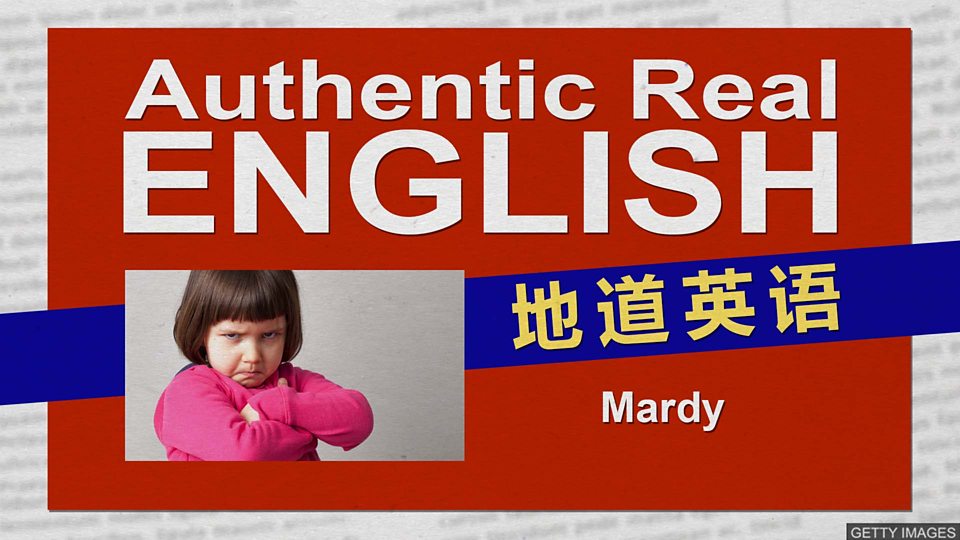内容简介
Rob 不知道菲菲为什么拉着个脸,看上去十分烦躁。但菲菲说自己并没有闷闷不乐,只是为了配合节目中要讲的内容而 “进入状态” 罢了。通过听 Rob 和菲菲的对话,学习如何在日常会话中恰当地使用形容词 “mardy”。
文字稿
(关于台词的备注: 请注意这不是广播节目的逐字稿件。本文稿可能没有体现录制、编辑过程中对节目做出的改变。)
Feifei
Hello and welcome to Authentic Real English from BBC Learning English. 大家好,我是冯菲菲。
Rob
And hi, I'm Rob. Hey Feifei, why the long face?
Feifei
What's wrong with my face?
Rob
I mean, why are you looking so… grumpy?
Feifei
Grumpy 烦躁?
Rob
Yes… moody.
Feifei
Moody? There's nothing wrong – this is my normal face. Why are you throwing so many insults at me?
Rob
Oh come on, you do look a bit bad-tempered.
Feifei
我没有生气啊。But I’m getting angry now.
Rob
Ah great! Then I can describe you as 'mardy'.
Feifei
Mardy? I hope that's not another insult.
Rob
It's not an insult – but 'mardy' does describe someone who is in a bad mood, moans a lot and gets annoyed easily. So, thanks for demonstrating that, Feifei!
Feifei
My pleasure! 在英式英语里,形容词 “mardy” 可以用来描述一个人总是拉着个脸,好像大家都欠他似的,并且烦躁易怒。That's not me! Let's hear some examples.
Examples
There are no desks for Pedro to work at today so he has to sit on the sofa - no wonder he's so mardy.
My boyriend is always so mardy – nothing seems to please him. Maybe I shouldn't have come home drunk last night!
Steer clear of me today. I only had four hours' sleep last night and I'm really mardy today.
Feifei
这里是 BBC 英语教学的《地道英语》节目。这集节目里教给大家的形容词 “mardy” 可以用来描述一个人拉着个脸,抱怨周遭的一切,非常情绪化、郁郁寡欢的样子。As I was saying, Rob, I am not mardy!
Rob
Hmm, if you say so, Feifei.
Feifei
But I know something to make you mardy.
Rob
Oh yes?
Feifei
You're going to have to record this programme again.
Rob
What? Again? Why?
Feifei
因为你忘了解释 “mardy” 可以形容人闷闷不乐 sulky,或脾气暴躁 grumpy。
Rob
Hmm, you're just being awkward. I am not going to start this programme again – I'm too busy. I'm off to get a coffee. Goodbye!
Feifei
Ha. Who's mardy now? Or is he just acting? Bye.


 3342次下载
点击下载
3342次下载
点击下载
 2621次下载 点击下载
2621次下载 点击下载
 4734次下载 点击下载
4734次下载 点击下载
 1854次下载 点击下载
1854次下载 点击下载
 1391次下载 点击下载
1391次下载 点击下载
 1391次下载 点击下载
1391次下载 点击下载











